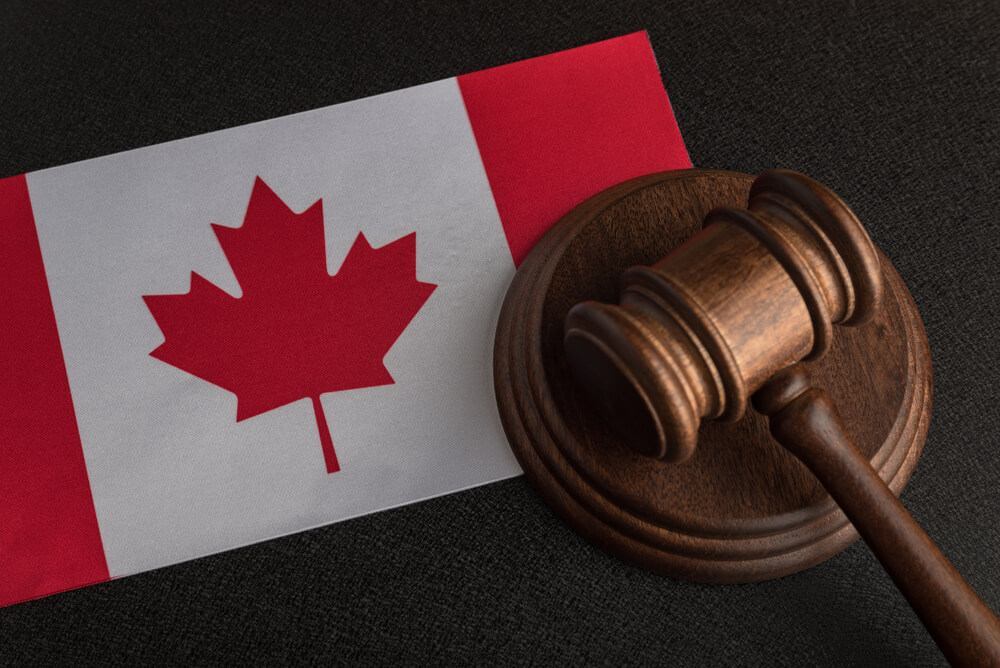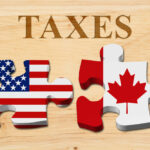
Alberta Gambling Laws: Everything You Need to Know
Gambling has been a part of human society for centuries, and it continues to be a popular form of entertainment across the world. However, each country and region has its own set of laws and regulations governing gambling activities, and Alberta is no exception. If you are planning to gamble in Alberta, Canada, it is essential to be aware of the local gambling laws and regulations to avoid any legal issues. In this article, we will explore everything you need to know about Alberta’s gambling laws, including the legal gambling age, types of legal gambling activities, and more. Whether you are a resident or a visitor to Alberta, this article will provide you with the necessary information to gamble safely and responsibly.
What Types of Gambling is Legal in Alberta?
Alberta offers a variety of legal gambling options for its residents and visitors, ranging from traditional casino games to horse racing and lotteries. Casinos are the most popular form of gambling in Alberta, with numerous establishments located throughout the province. Horse racing is also a popular activity, with several race tracks operating in the province.
Lottery and gaming are controlled by the Alberta Gaming, Liquor and Cannabis Commission, offering various options for people who prefer to play from home. Bingo and raffles are common charitable gambling options, where proceeds go to a good cause.
Charitable gaming is also regulated by the Alberta Gaming, Liquor and Cannabis Commission, with specific rules and regulations in place to ensure fairness and transparency. Overall, Alberta offers a wide range of gambling options, each with its own rules and regulations that must be followed.
The Alberta Gaming and Liquor Commission (AGLC)
The Alberta Gaming and Liquor Commission (AGLC) is a government agency responsible for regulating all forms of gambling and liquor activities in Alberta. The AGLC’s primary mandate is to ensure the integrity and security of the gaming industry in Alberta. The agency also promotes responsible gambling practices to protect the interests of players and prevent problem gambling.
The AGLC has the power to issue licenses for all gambling activities in Alberta, including casinos, bingo halls, and horse racing tracks. It is also responsible for enforcing gambling laws and regulations, conducting background checks on license applicants, and monitoring gambling activities to prevent illegal gambling and money laundering.
In addition to its regulatory duties, the AGLC also manages the province’s liquor industry, including issuing licenses, conducting inspections, and enforcing liquor laws and regulations.
The AGLC plays a crucial role in enforcing gambling laws in Alberta. It works closely with law enforcement agencies to investigate and prosecute illegal gambling activities, such as unlicensed casinos and sports betting. The agency also educates the public about responsible gambling practices and provides support for problem gamblers through its GameSense program.
Overall, the AGLC is an essential agency in Alberta’s gambling industry, responsible for ensuring that gambling activities are conducted fairly and securely and protecting the interests of both players and the province.
Legal age for gambling in Alberta
The legal age for gambling in Alberta is 18 years old. This age limit applies to all forms of gambling, including casinos, horse racing, lottery and gaming, bingo, and raffles. Anyone who is under the age of 18 is not permitted to participate in any gambling activities in Alberta, and any attempt to do so is considered illegal.
Underage gambling can have serious implications for young people. It can lead to addiction, financial problems, and even criminal activity. In addition to the risks associated with gambling, underage individuals who are caught gambling can face serious penalties, including fines and even imprisonment.
The penalties for underage gambling in Alberta vary depending on the circumstances. For example, an underage individual caught gambling at a casino can be fined up to $10,000, and the casino may face penalties and sanctions for allowing underage gambling to occur on their premises. In addition to fines, underage individuals may be banned from participating in gambling activities in the future.
It is essential to remember that gambling is a form of entertainment that should be enjoyed responsibly and within legal limits. If you are under the legal gambling age in Alberta, it is important to wait until you are 18 years old to participate in any gambling activities to avoid any legal repercussions.
Legal framework for Gambling in Alberta explained
The legal framework for gambling in Alberta is governed by several laws and regulations at both the federal and provincial levels. The Criminal Code of Canada is the primary federal law that regulates gambling activities across the country. It prohibits illegal gambling, such as running a betting house or participating in illegal gambling activities.
At the provincial level, the Alberta Gaming, Liquor and Cannabis Act (AGLCA) is the main legislation that governs gambling activities in the province. The AGLCA outlines the rules and regulations for all forms of gambling, including casinos, lottery and gaming, bingo, and raffles. It also provides the Alberta Gaming, Liquor and Cannabis Commission (AGLC) with authority to regulate and oversee the gambling industry in the province.
The Alberta Gaming, Liquor and Cannabis Regulation (AGLCR) is a set of regulations that complements the AGLCA. It provides specific guidelines for licensing, operating, and regulating different types of gambling activities in the province. It also outlines the procedures for investigating and prosecuting illegal gambling activities and provides penalties for those who violate the laws and regulations.
Together, the Criminal Code of Canada, the AGLCA, and the AGLCR create a legal framework for gambling in Alberta that promotes responsible gambling practices, protects the interests of players, and prevents illegal gambling activities. It is essential for anyone who participates in gambling activities in Alberta to be aware of these laws and regulations to avoid any legal issues.
Gambling Licenses and Permits in Alberta
Gambling licenses and permits in Alberta are required for all forms of legal gambling activities. These licenses and permits are issued by the Alberta Gaming, Liquor and Cannabis Commission (AGLC), which is responsible for regulating and overseeing the gambling industry in the province.
There are several types of gambling licenses and permits available in Alberta, including:
- casino licenses
- horse racing licenses
- bingo licenses
- raffle licenses
Each license type has its own set of requirements and regulations that must be met before a license or permit can be issued. The application process for gambling licenses and permits in Alberta varies depending on the type of license or permit being sought. Generally, applicants must complete an application form, provide detailed information about their business or organization, and undergo a background check to ensure they are eligible to hold a license or permit.
Once an application has been submitted, the AGLC will review the application and may request additional information or documentation before issuing a license or permit. The AGLC may also conduct inspections and audits of licensed establishments to ensure compliance with all laws and regulations.
In summary, obtaining a gambling license or permit in Alberta is a necessary step for any individual or organization that wishes to conduct legal gambling activities in the province. The application process can be complex, and it is essential to be familiar with the specific requirements and regulations for each type of license or permit.
Responsible gambling
Responsible gambling is an essential aspect of Alberta’s gambling industry. The Alberta Gaming, Liquor and Cannabis Commission (AGLC) is responsible for promoting and enforcing responsible gambling practices in the province. The AGLC works to ensure that gambling activities are conducted in a safe and secure environment and that players have access to information and resources to gamble responsibly.
The AGLC has implemented several programs and initiatives to promote responsible gambling in Alberta. One of the primary initiatives is the GameSense program, which provides information and resources to help players make informed decisions about their gambling activities. The program includes a website, self-assessment tools, and in-person support services to help individuals understand the risks of gambling and develop strategies to gamble responsibly.
The AGLC also works with licensed establishments to promote responsible gambling practices. For example, casinos are required to provide responsible gambling information and resources to their customers, such as brochures, signage, and training for staff.
In addition to promoting responsible gambling, the AGLC provides support for individuals who may have a gambling problem. The AGLC funds a helpline, the Alberta Addiction and Mental Health Helpline, which provides confidential support and referrals to treatment programs for individuals struggling with problem gambling.
Comparing other Canadian provinces
Canada is a country where each province has its own laws and regulations governing gambling activities. Some provinces, like Quebec and Ontario, have government-run online gambling websites, while others, like Saskatchewan and Manitoba, only allow gambling activities to be conducted by non-profit organizations.
In terms of the legal gambling age, most provinces have set it at 18, the same as Alberta. However, some provinces have raised the legal gambling age to 19 such as British Columbia, Nova Scotia, and New Brunswick.
In terms of the types of gambling activities, each province has its own regulations. For example, Quebec has more lenient regulations for online gambling and allows for online casino games, whereas Ontario only allows online lottery and sports betting. British Columbia and Manitoba allow for online sports betting, while Saskatchewan only allows for in-person sports betting.
In terms of charitable gaming, each province has its own regulations and rules for conducting and managing charitable gambling activities, such as bingo and raffles.
Overall, while each province has its own unique set of laws and regulations governing gambling activities, there are some similarities with Alberta’s gambling laws, such as the legal gambling age of 18 and regulations for charitable gaming. However, there are also differences in the types of gambling activities that are allowed and the regulations surrounding them, such as online gambling and sports betting. It is important to be familiar with the specific laws and regulations in each province before participating in any gambling activities.
Future of Gambling in Alberta
The future of gambling in Alberta is uncertain, and there is always the potential for changes to gambling laws and regulations in the province. One potential change could be the legalization of single-game sports betting, which would allow individuals to place bets on the outcome of a single sporting event. Another potential change could be the expansion of online gambling, which would allow individuals to gamble from the comfort of their own homes.
Changes to gambling laws could have a significant impact on the industry in Alberta. For example, the legalization of single-game sports betting could lead to increased revenue for casinos and sportsbooks, as well as increased tourism to the province. However, it could also lead to increased problem gambling and potential negative social impacts.
Emerging trends in the gambling industry, such as virtual and augmented reality, could also impact the future of gambling in Alberta. These technologies could potentially enhance the gambling experience for players and provide new opportunities for casinos and other gambling establishments to attract customers.
It is important for the Alberta Gaming, Liquor and Cannabis Commission (AGLC) to carefully consider any potential changes to gambling laws and regulations and to ensure that they are implemented in a way that promotes responsible gambling practices and protects the interests of players and the community. Ultimately, the future of gambling in Alberta will depend on how well the industry can adapt to emerging trends and changes in consumer preferences while maintaining a responsible and sustainable approach to gambling.
FAQs
Which Canadian Banks Allow Online Gambling?
Most Canadian banks allow online gambling transactions, but some may have restrictions or fees. Here are some examples of banks that allow online gambling transactions: Royal Bank of Canada (RBC), Toronto-Dominion Bank (TD Bank), Bank of Nova Scotia (Scotiabank), Canadian Imperial Bank of Commerce (CIBC). However, it’s important to check with your specific bank to determine their policy regarding online gambling transactions.
Is Online Gambling Legal in Alberta?
Yes, online gambling is legal in Alberta. The Alberta Gaming, Liquor, and Cannabis Commission (AGLC) regulates all gambling activities within the province, including online gambling. However, it’s important to ensure that the online casino you’re playing at is licensed and regulated by a recognized regulatory body, such as the Malta Gaming Authority or the United Kingdom Gambling Commission.
Can You Legally Gamble Online in Canada?
Yes, online gambling is legal in Canada. However, each province has its own regulatory body and may have specific regulations regarding online gambling. In Alberta, the AGLC regulates online gambling activities, but other provinces may have different regulations.
Is Bet365 Legal in Alberta?
Yes, Bet365 is legal in Alberta. Bet365 is one of the largest online gambling sites in the world and is licensed and regulated by the Malta Gaming Authority. It’s also one of the most popular online gambling sites in Canada.
Do Gamblers Pay Tax in Alberta?
Yes, gamblers in Alberta are required to pay taxes on their winnings. Any winnings from gambling activities, including online gambling, are considered taxable income and must be reported on your tax return. However, there is a threshold for how much you can win before you are required to pay taxes, so it’s important to consult with a tax professional to determine your specific obligations.


